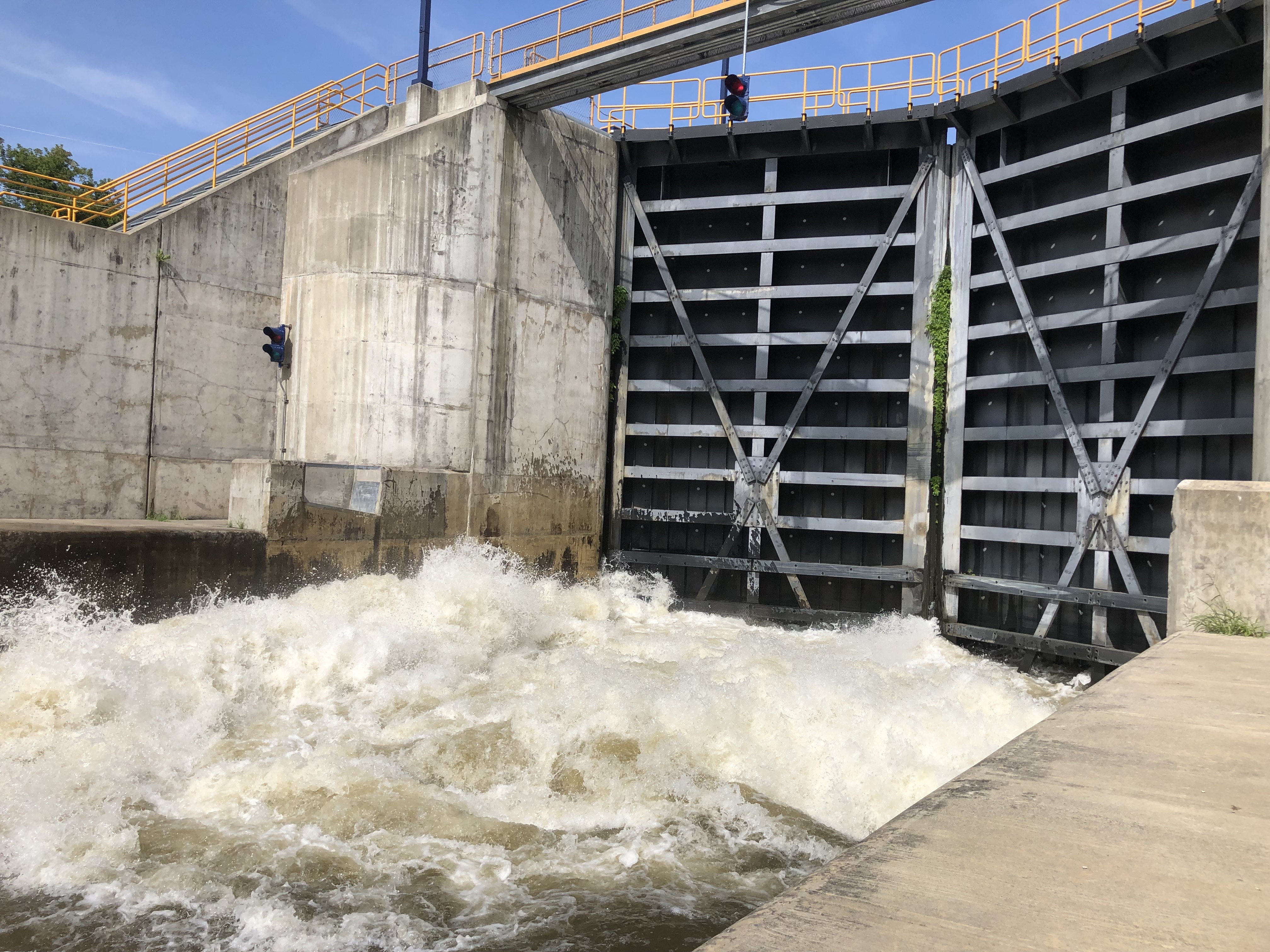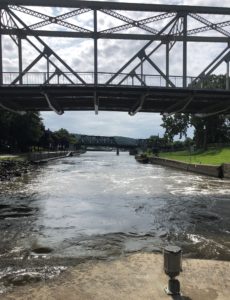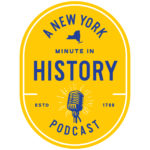
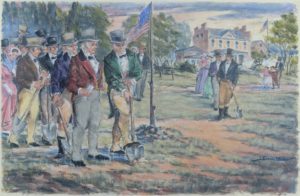
Ground-Breaking Ceremony by J. Erwin Porter, ca. 1960. The first shovel of dirt was ceremoniously overturned outside Rome, NY on July 4, 1817. Credit: NYS Museum
On the third episode of A New York Minute In History we explore the Empire State’s most ambitious engineering feat…the Erie Canal. Completed in 1825, it transformed New York and the nation by compressing time and distance, providing the fuel for an explosion of commerce, communication and social change.
To learn more about the Erie Canal and its impact, check out the New York State Museum’s latest exhibit on the waterway.
Thanks to Brian Stratton and John Callaghan of the New York State Canal Corporation, Brad Utter of the New York State Museum, Jim Hendler of Rensselaer Polytechnic Institute as well as authors Carol Sheriff and Jack Kelly for all of their help with this episode.
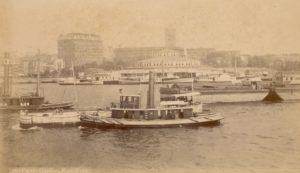
New York Harbor, photograph, ca. 1880. View of New York Harbor with Castle Garden in the background. Credit: NYS Museum
Music used in Episode 3 of A New York Minute In History includes “When The Boys Come Home” composed by Oley Speaks and “Low Bridge, Everybody Down” performed by Edward Meeker and written by Thomas Allen.
Check in with A New York Minute In History on Twitter or by emailing anyminuteinhistory@gmail.com.
A New York Minute In History is a podcast about the history of New York and the unique tales of New Yorkers. It is hosted by Devin Lander, the New York State Historian, and Don Wildman. Jim Levulis is the producer. A New York Minute In History is a production of the New York State Museum, WAMC Northeast Public Radio and Archivist Media.
Support for this program comes from the William G. Pomeroy Foundation®, which helps people celebrate their community’s history by providing grants for historic signage. It’s a great time for canals! This year marks the 100th anniversary of the New York State Barge Canal. And we’re in the midst of a multi-year bicentennial celebration for the Erie Canal. Now, with all the excitement, the Pomeroy Foundation has launched a new nationwide signage program to promote cultural tourism and commemorate the history of transportation canals. Markers will be placed at existing or former canal sites all the way across the United States. To apply for a fully funded grant or to learn more about the Foundation’s signage programs, visit: WGPfoundation.org.
The project is also sponsored by a Humanities New York Action Grant with funds from the National Endowment for the Humanities. Any views, findings, conclusions or recommendations expressed in this program do not necessarily represent those of the National Endowment for the Humanities.
